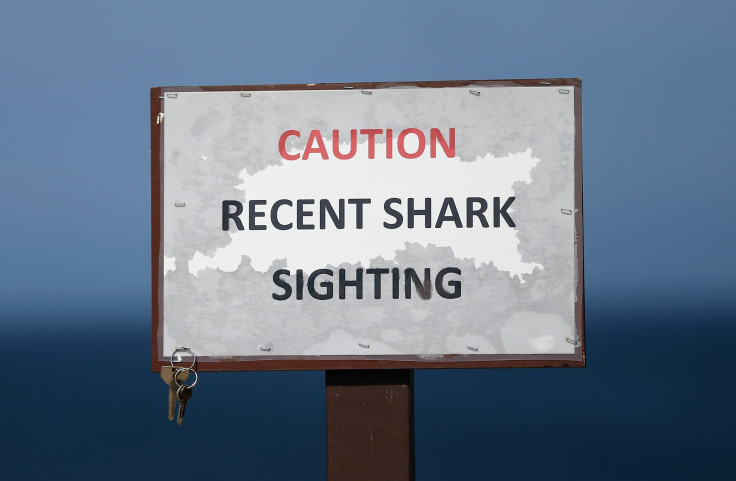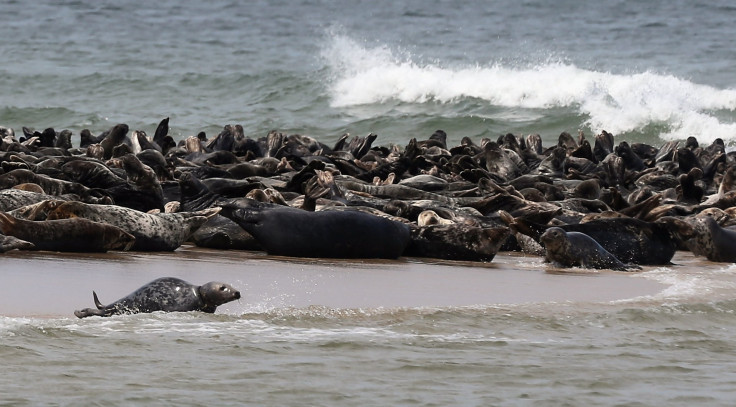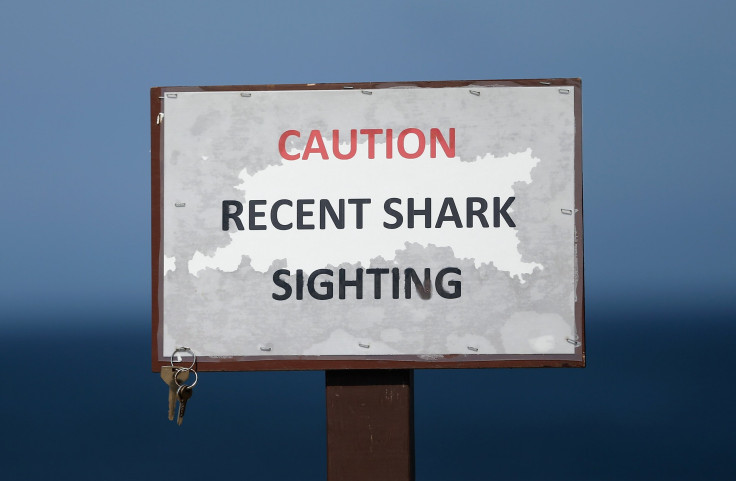Great White Sharks Increasing Off Cape Cod Coast; First Responders Prepare For Attacks

Just in time for vacation season, Cape Cod is about to see the population of great white sharks in its waters explode. Experts in the area said they expected up to 150 of the massive creatures off the coast this summer —enough to cause first responders to start training programs about how to recognize the sharks and deal with their potentially lethal bites.
Scientists from the Massachusetts Marine Fisheries have studied population numbers in the area for years. In 2014, a team counted 68 sharks. Last summer, however, scientists counted 147 great whites in Cape Cod. Marine Fisheries scientists Gregory Skomal told National Geographic in March that the increasing number of juvenile sharks spotted in summer 2016 meant the population as a whole was rebuilding.
Read: Shark Attacks Mother Of 3, Bites Off Arm While Snorkeling In Bahamas
“They have multiplied in numbers exponentially since I became chief,” Orleans fire chief Anthony Pike told the Boston Herald Monday. “Great white sharks comprise about 30 percent of my daily work right now and I never, ever thought that would be a thing.”

Those increasing numbers might mean that a deadly shark attack is somewhere in the near future.
“It’s not if, it’s when, in terms of somebody being fatally attacked,” Skomal told National Geographic in 2016. “We’ve got seals being eaten within 100 meters of surfers. Think about that. Cape Cod is coexisting right now, but we haven’t had the attack; we haven’t had that fatal attack.”
George Burgess, director of the shark research program at the University of Florida and the editor of the International Shark Attack File, said he predicted there would be some such attack within the next five years.
“It’s the combination of a large predator and the things they eat, both gaining in population size and both coming back to lay claim to areas that historically were theirs 150 years ago,” Burgess told the Cape Cod Times in January. “The inevitable conflict is that we have laid claim to those beaches for our recreation and sport.”
In order to deal with an attack, first responders in the area have begun a training program involving 20 lifeguards and four EMTs. Visitors to the area have been advised not to swim near seals and to stay out of the water when sharks are hunting at dusk.
Any attacks that do occur, Skomal said, are much more likely to be a case of “mistaken identity” than a shark intentionally going after a human.
“You know, biting the person thinking that it might be a normal prey item like a seal,” he told the Boston Herald. “Typically, the shark won’t eat the person. As a result though, white sharks have very big jaws and shark teeth and cause traumatic injuries and those kinds of traumatic injuries could lead to fatality.”
Read: Video Shows Shark Attacking Man Fishing In Florida Keys
Cape Cod is not alone in its expected shark population boom — Southern California has seen an uptick in shark sightings as of late as well.
“I attribute a lot of that to better conservation,” marine biologist Dr. Chris Lowe told CBS News in May. “We protected white sharks 20 years ago in California, their food source has come back and in many ways, our coastal oceans are getting healthier.”

© Copyright IBTimes 2025. All rights reserved.






















